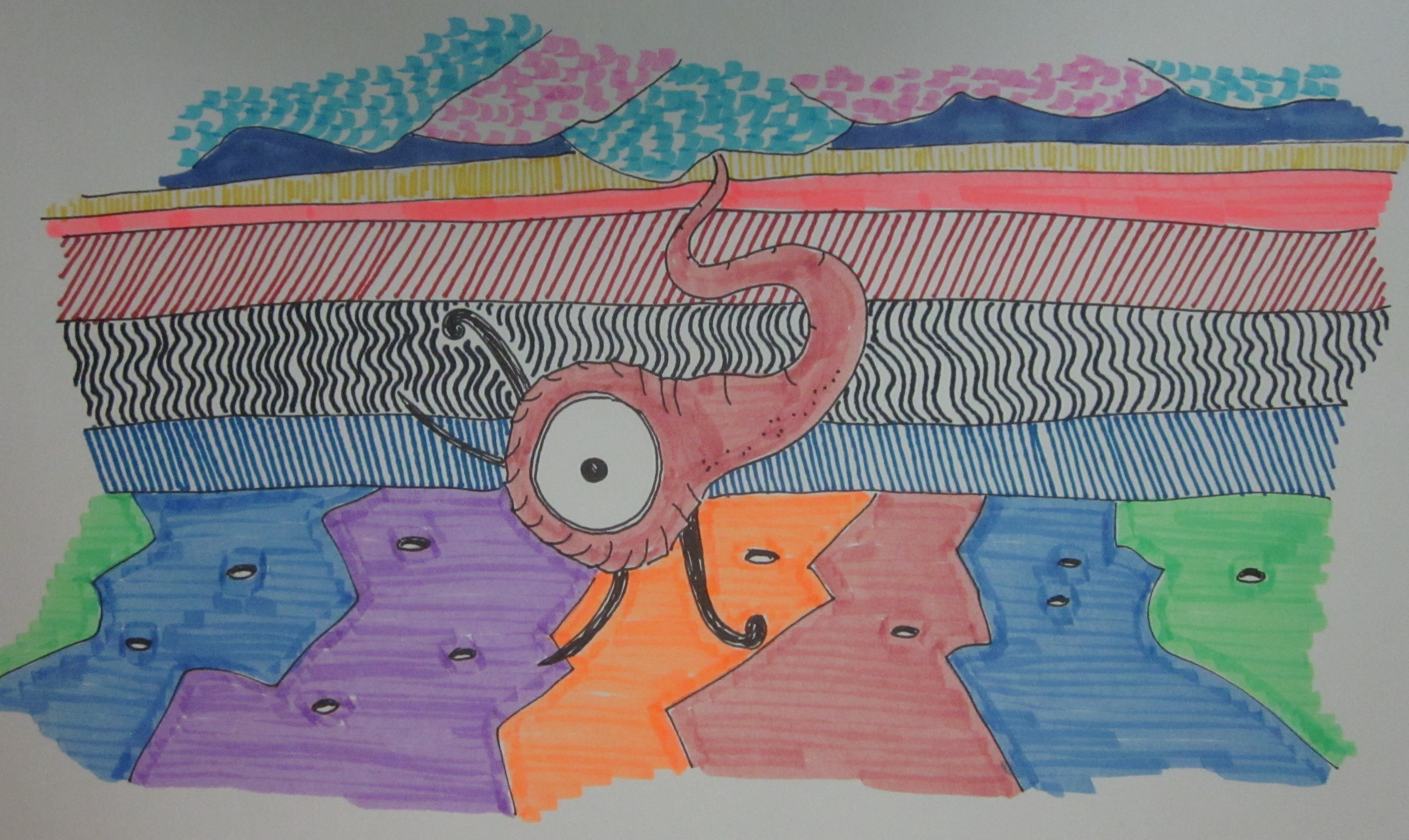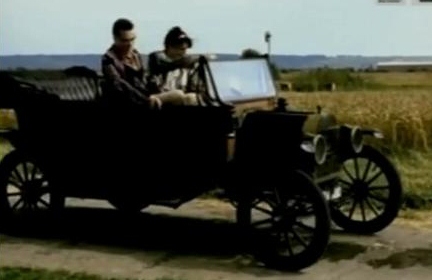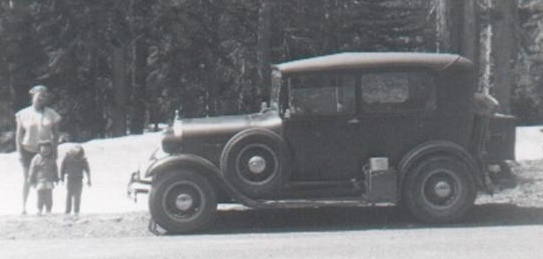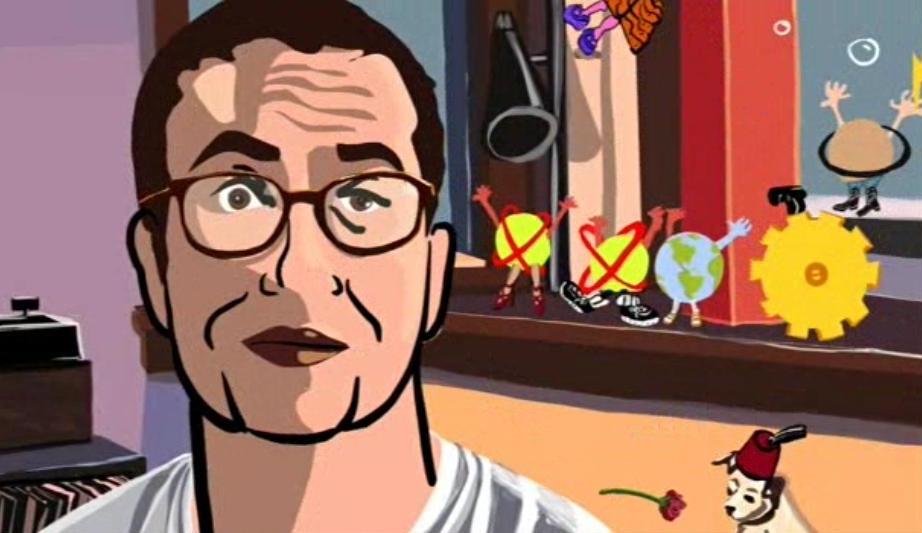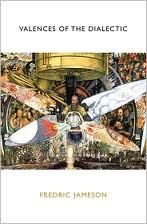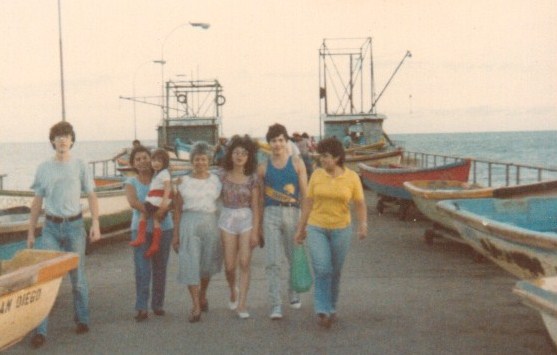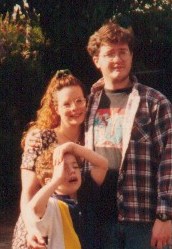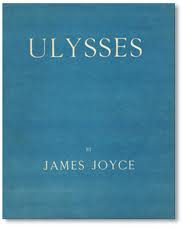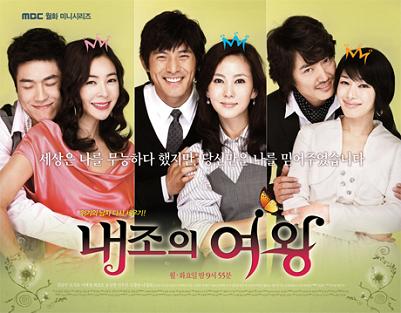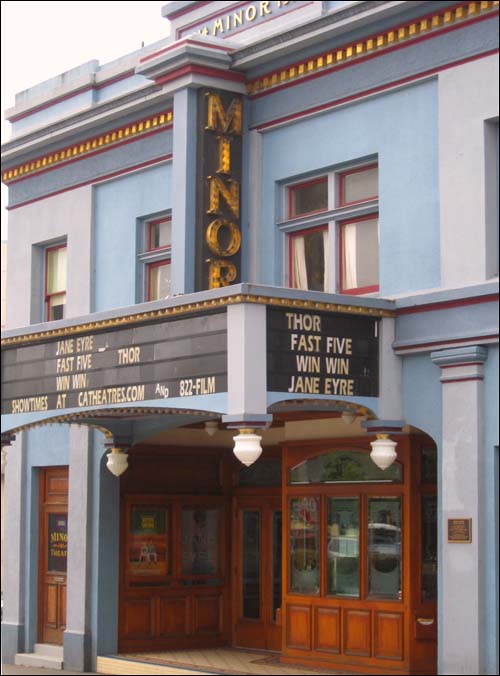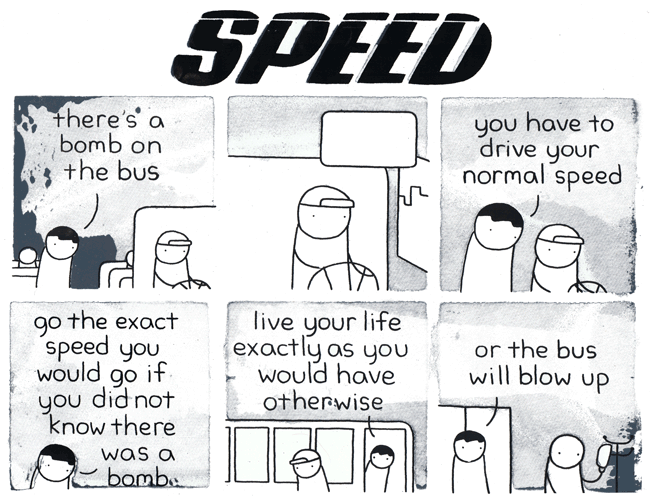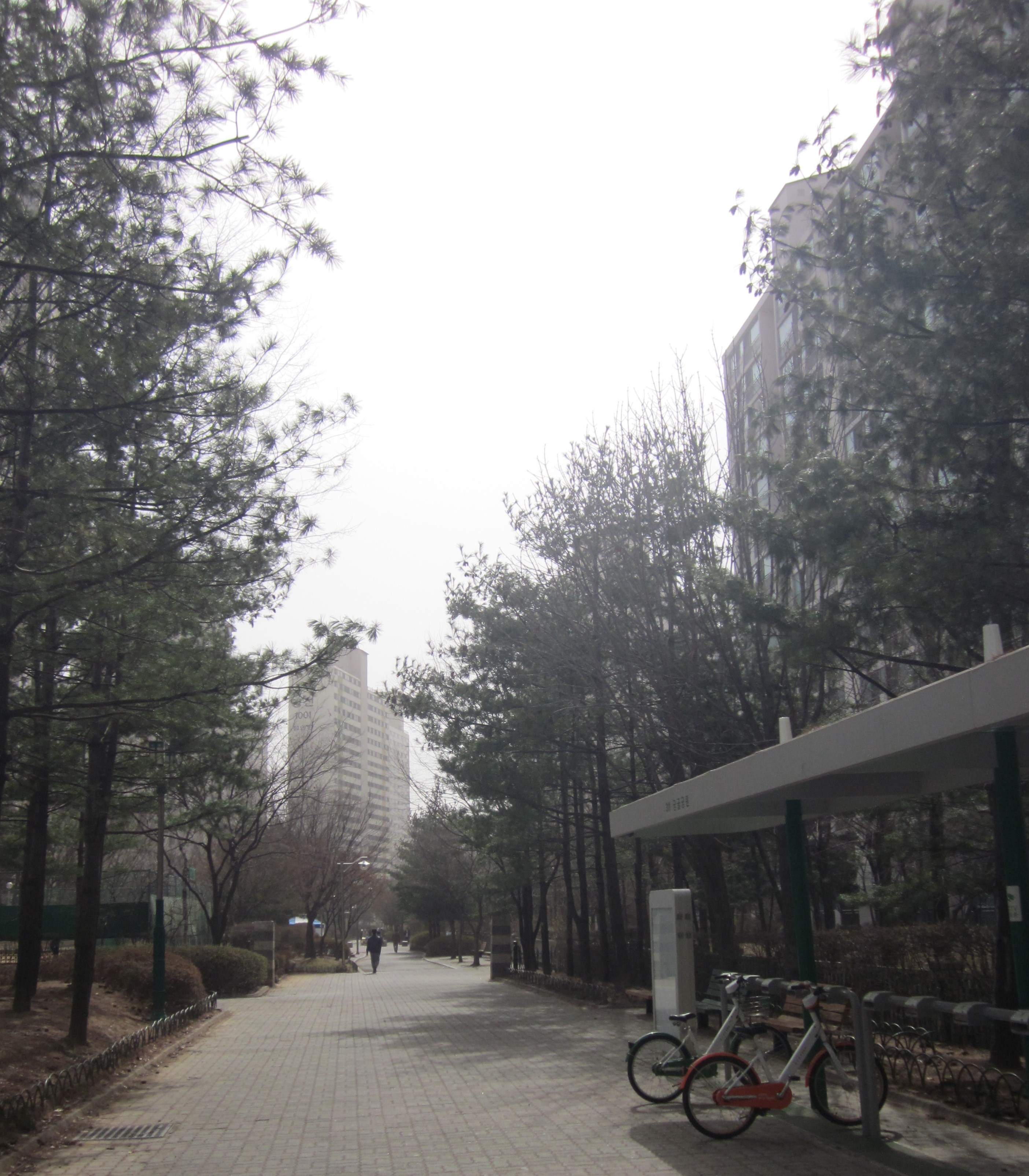When I was a child, I had not one but several traumatic experiences around learning to swim. There was the rather unenlightened “throw them in the deep end and they’ll figure it out” approach that I got around age 7 or 8 at the Humboldt State University pool for some community-based children’s swimming class. And there was an event a few years later, I think, at the pool at College of the Redwoods, where some people in my extended family had taken me, where I ended up cracking my face open and filling the pool with blood and getting stitches later. Finally, feeling the deficit of my swimming ability, I enrolled, on my own initiative, in a private beginning swimming class one summer at the Arcata community pool. After 8 weeks of flailing around, my instructor pronounced me that most unusual of cases: I was, apparently, “unteachable.” Though this last was just a wounding of my ego, it was perhaps the most traumatic of all.
The consequences of these experiences were twofold. The first, obviously, is that I retain some anxiety around swimming, to this day. I did manage, in fact, to pass a “tread water” test while in the Army, and I feel confident that I could perhaps manage to get across a short stretch of water if I had to, in an emergency. But I’ve never enjoyed swimming recreationally, and I’m not a confident swimmer. The second is less obvious: whenever I feel anxiety, that smell of chlorinated pool water makes an appearance, like an olefactory memory but just as vivid as any visual or aural one, if not more so.
This is perhaps interesting – it’s like a sort of special-case synesthesia that comes to me in moments of despair and high anxiety, which, thankfully, don’t hit me that often these days. In high school during exams, I would smell chlorine. In university, while struggling to write papers during all-nighters, I would smell chlorine. Once, when I asked a certain someone on a date, I smelled chlorine.
Today, I had a weird experience. It was what you might call a case of empathetic anxiety-related synesthesia.
We are giving all the students at the hagwon special year-end “level tests,” which is because, effective with the new year, they technically move up a grade level. So the hagwon needs to re-place them in their appropriate ability level. This is especially important for the students moving up from the elementary curriculum to the middle-school curriculum.
The level test, being a level test, is astoundingly difficult. I’d say it’s almost SAT-ish. These are Korean kids who sometimes struggle to emit a coherent English sentence about how they feel, under relaxed conditions. For these… well, it’s basically just gobbledygook to some of them. Specifically, the PN반. PN is the lowest ability middle-school level at Karma. Don’t ask me what PN stands for – something involving “Pioneers,” I think.
When I went in to monitor their test-taking experience, already in progress, I swear several of them were in tears. Others had long given up and were sleeping, face-planted at their desks, with more than an hour still remaining of test time.
I tried to rouse their enthusiasm, and few of the more communicative ones just said, “oh. very, very hard.” Heavy sighs all around.
Several of the students were drawing pictures on the test paper. One was using his pencil as a random number generator (to give him the answers), by spinning it and seeing which point of the compass it indicated (this is a near-universal test-taking strategy in Korea, The Land of the Morning Multiple-Choice Test).
I had this moment of deep, deep empathy. I realized that if I were confronted with a test of the Korean Language at the same rough level as the test these kids were facing (and given that I long ago concluded that I was a PN반-type student of Korean, and not one of the more advanced ones), I would, even at 46 years of age, be in tears, too. And I don’t even have to worry about getting into a good high-school so I can get into a good university so I can get a good job so I can be successful so I can fulfill my obligations to my family and, most importantly, to my ancestors.
Watching my students tugging at their hair, playing with their pencils, making red sleep-marks on their cheeks by sleeping against the corner of the desk, I felt rising up in me the most profound empathy. It wasn’t fair!
And then I smelled that chlorinated water smell. Perhaps for one of the few times in my life, it came to me not because of my own anxiety and pain and despair but because of an awareness of those feelings in those around me.
Maybe… it’s like being the kind of person who cries at the movies. Maybe.

